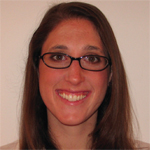
Dr. Meara
Dr. Meara concurs. “As physicians, not trying to be martyrs, we respect how difficult it is for patients to get appointments and often how far patients have to commute to see us. We know that patients have rescheduled their day or week to make appointments or surgeries, made childcare arrangements and so forth. Therefore, we do not want to cancel unless we really have to,” she says.
In addition, making a patient unhappy can have consequences that affect a physician’s reputation. “Medicine has changed due to social media and patient satisfaction scores; we are ultimately judged by our patients,” Dr. Meara says. “If we cancel due to illness, then patients have to reschedule, causing our patient satisfaction scores to potentially drop.”
In addition to having an impact on patients, taking a sick day affects fellow physicians. “I do not like to burden my fellow rheumatologist partners with patient phone calls, medication refills, and laboratory results and other documents to review,” Dr. Leibowitz says.
As a solo practitioner, Dr. Rubenstein does not have any coverage if she stays home sick. “If I have a headache or something small, I come to the office and make do,” she says.
Overcoming Challenges
It’s important to have a plan in place to deal with a sudden absence. “First of all, patients should be notified as soon as possible so that they can rearrange their schedules if necessary,” Dr. Kaplan says. Second, “time slots should be reserved in the schedules of covering physicians to accommodate any urgent patients. This may even require rescheduling some non-urgent patients of the covering physicians.”
Care should be taken to not overburden the covering physicians, because this is not in the best interest of patients, Dr. Kaplan continues. Nurses or other support personnel can assist canceled patients by arranging for medication refills or urgent needs that will hold the patient over until they can be seen.

Dr. Leibowitz
Dr. Leibowitz has some built-in flexibility; for the past two years, he has taken Thursdays off. “If needed, I will work a Thursday to accommodate patients who had to be rescheduled as a result of a sick day,” he says.
Having a good working relationship with his partners makes it easier to accommodate patients. “If one of us has to be out, we have a system to assign coverage to one of the rheumatologists who is working in the office,” Dr. Leibowitz says. “If there are major clinical decisions to be made, we are comfortable calling and texting each other on the fly.”

